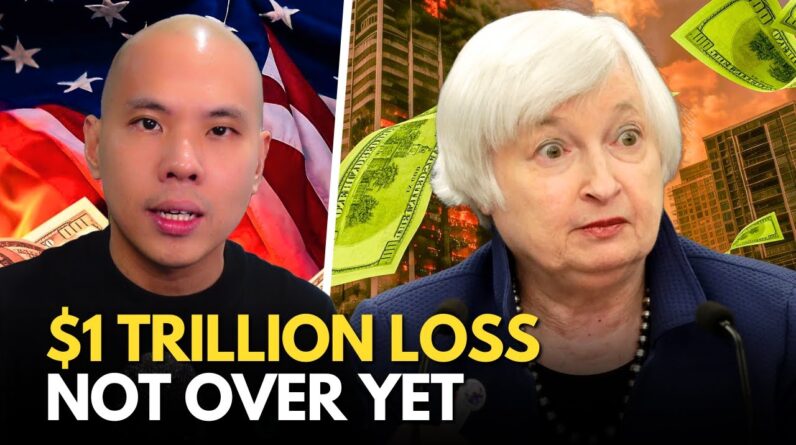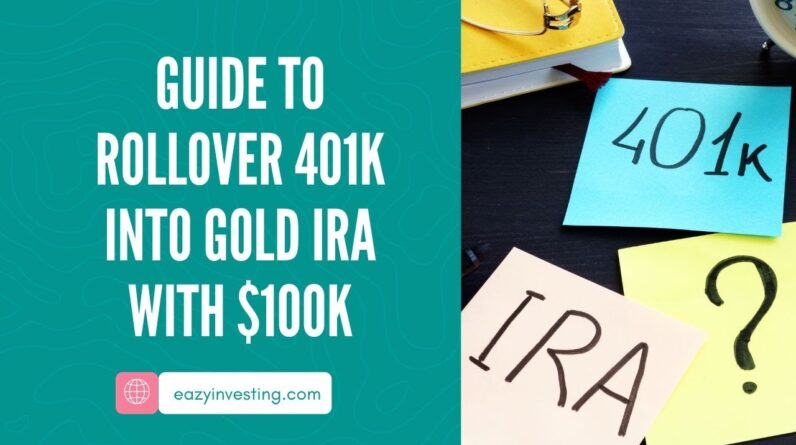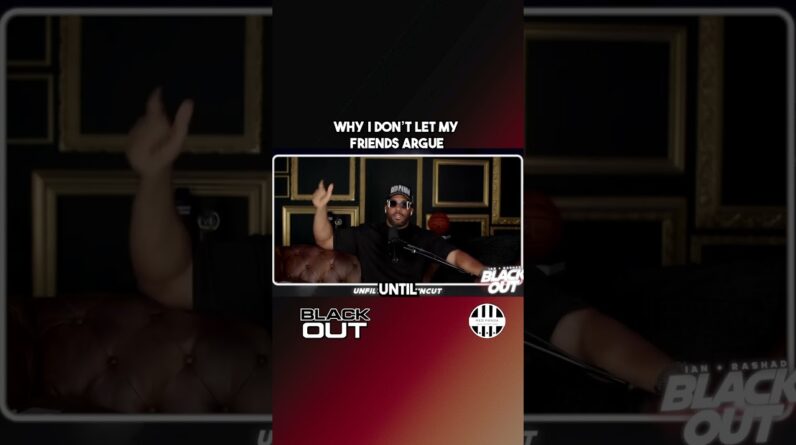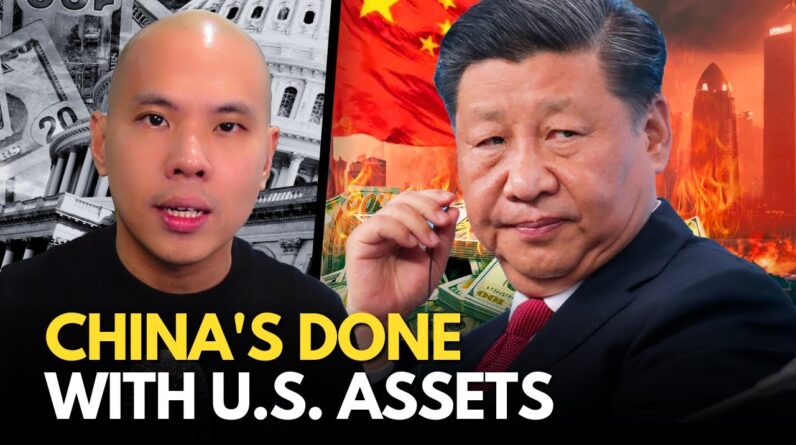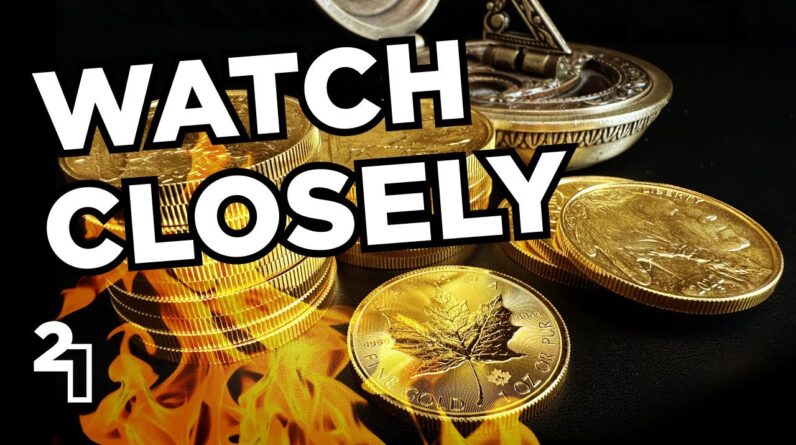If you're looking to get rich and stay Rich here's the seven assets you need to Own for Life yes investing is a lot more Than just stocks and bonds if that's all You've been exposed to thus far you're Gonna find out what other asset classes Out there have enabled people to build Tremendous amounts of wealth well if you Study Millionaires and billionaires out There what you're going to find is that True wealth building requires Diversification across different asset Classes so we're going to be going Through these seven today cash equities Bonds alternative Investments real Estate business and private equity and Within each of those asset classes each One of those has a unique strategy that Changes over time so think about every Single one of those different Diversified asset classes doing Something differently for you having a Defined strategy but also one that is Adjusted as you get closer to your Eventual goal which for most people is Retirement or just not having to worry About money to pay for their day-to-day Life so let's break each one of these Into more detail now starting with Number one which is Cash well there's a Saying out there that cash is King and That statement is not more true than During a recession and whether that Means living off of your savings because
You lost your job or buying the deal of A Lifetime on a real estate deal well Cash is going to be very necessary at Those times and during the good times Too effective cash management is Probably one of the most important Skills you have to manage to build Wealth and keep wealth and what that Means is finding the right balance Between holding cash and investing cash Now that being said with the cash that You're holding in your reserves while All methods of holding cash are not Created equally for example there is the High yield savings account which a lot Of people totally ruled out during the Low interest rate environment but Interest rates are back baby and so in Addition to that so are higher yields on Savings accounts so that is becoming a Much more important factor these days There's also I bonds which is a way to Outpace inflation backed by the US Government I just did a full video Tutorial about them so if you're Interested I'll put a card up in the Corner but perhaps the most important Thing related to this asset class is Your emergency fund before you invest You must have an emergency fund and most Experts recommend that is enough to Cover four to six months of all of your Living expenses now in addition to that I bonds video I recently did a video as
Well talking about the emergency fund And how to build that up as part of your Overall personal finance portfolio so I Will put put a card up in the corner for That video as well talking about Preparing yourself before investing and Building up that emergency fund so Before you begin to learn how to manage Any other asset out there learn how to Effectively manage your cash it's your Most important asset moving on number Two is equities now equities is just a Fancy word out there for stocks and Stocks provide investors the ability to Own slices or shares of actual companies Out there now when you're younger you Want to have a greater allocation of Your overall portfolio towards these Stocks because that's when you can Afford to take on more risk however even Within the asset class of equities it's Important to have diversification within This asset class so this means that You're allocating money to large Companies as well as medium-sized ones And some smaller emerging growth Companies in addition this means Investing both in internationally and in Domestic markets so if you lived in the United States Not only would you be Investing in U.S stock markets you would Also be investing in Global Financial Markets lastly stock picking is very Popular these days and I certainly don't
See anything wrong with that as long as You are managing risk appropriately but You should have a blend of both Individual stocks and investing in index Funds and a portfolio-based approach and This is usually the steps that people Take they start off with cash they learn How to manage their cash and then the Next investment they make is usually Equities and this can be accomplished Through a traditional taxable brokerage Account or trading account or it can be Through a 401k or other retirement plan From your employer so moving on after Equities the next asset that people Generally invest in is real estate now Depending on who you ask some would say That a house is not inherently an Investment that is because your average Single family home out there is going to Cost you a heck of a lot more than the Equity you build up in it over time most People will call Um your single family real estate a Forced Savings Plan not so much an Investment what I'm talking about is Investing in real estate outside of your Single family home and so the most Popular method of doing so and the way I Got into real estate too is called house Hacking this is where you buy not just a Single unit property you buy a two to Four unit property you live in one of The units and you rent the others out in
Order to pay the majority or all of the Mortgage and then after you own that Property for a few years you can Refinance and get some cash out to buy Your single family house and ideally use The cash flow from your rental property To supplement some of your mortgage Payments now that strategy right there Is probably going to take you five to Ten years to pull off so it's important To understand that real estate is not a Get rich quick scheme by any means and If you treat it like that you're Probably going to get your ass burned in The housing market however with the Right approach and the right attitude Real estate can build some serious Wealth over time and the key reason for That is leverage which is something you Have in real estate that isn't the case With most other Investments out there For example fifty thousand dollars is Twenty percent down on a two hundred Fifty thousand dollar property but if That property goes up ten percent in Value you yourself capture that full Appreciation so ten percent of 250k is 25 Grand so on your 50k investment you Just profited 25 Grand that's a 50 Roi Because of Leverage that's so important To understand about real estate so Understand that concept so that's it for Real estate but if you want to learn More I did a full video about how to buy
Your first rental property so I will put A card up in the corner for that now Real quick guys if you're looking to Manage your cash and invest all in one Place be sure to check out M1 Finance Which is the app that I personally use To do the following things with M1 Finance I both invest my money as well As borrow against my investments and This is more so something I do during a Lower interest rate environment but in Addition to that M1 Finance lets you Invest borrow save and spend all in one Place so it can allow you to accomplish Many of these different assets that You're looking to have exposure to over Time all within one Financial super app So if you want to check it out guys the Link is down in the description below For M1 Finance I am affiliated with them So if you sign up with my link I may Earn a commission in the process I also Have a completely free M1 Finance Training that walks you through part National Finance automation so if you Want to check that out that is also Going to be linked up down in the Description below and the sign up link For M1 Finance is going to be Ryan o Scribner.com M1- Finance okay guys so the fourth Asset you must own for life to become Rich is bonds now early on in life it's Not as important but as you get older
Bonds are extremely important because This allows you to de-risk your Portfolio so we've already talked about Equities or stocks which is having Actual ownership in a company bonds are Actually debt instruments where you're Actually just a debtor that is owed Money by the person you are basically Loaning that money to so with bonds you Don't actually own anything you just Have an entity that owes you money and What you do with bonds is early on in Life in your 20s you might have none of Your net worth in bonds but as you get Older you want to put more and more in Your portfolio into bonds typically Every five years now A good rule of Thumb to use is you can take 120 Subtract your current age and that will Give you the percentage of your money That you should have allocated to Equities the other amount should be in Bonds now guys there's more to it than That that's just a simple rule of thumb But for example a 25 year old would take 120 minus 25 meaning 95 percent should Be in equities with five percent in Bonds but a 50 year old should take 120 Minus 50 which would be 70 meaning 70 Percent in equities or stocks thirty Percent in bonds so as you get older More and more of your money is allocated Into bonds meaning less growth potential But you're also de-risking meaning if
The market collapses you have less Downside risk and your portfolio will be Propped up better now there's four Different types of bonds out there but Most people are are familiar with the Most common three the first is Corporate Bonds these are issued by companies Looking to raise Capital next there's Municipals bonds which are issued by States and local governments to fund big Projects like roadways or water lines And then you have government or U.S Treasury bonds which come straight from The U.S government the other category is Agency bonds issued by government Affiliate organizations such as Fannie Mae but most people are familiar with The top three as those are more common And instead of individual Bond Purchasing what most people are going to Do is invest in a bond Index Fund which Is a basket or portfolio of many Different bond funds and within that You're usually going to have a mixture Of corporate and treasury bonds and in Some cases municipal bonds as well Alrighty so number five on the list is Cryptocurrency now is it necessary to be In your portfolio to become rich only Time will tell but at this point point In time while crypto is still deemed a Speculation by many a lot of people are Saying it should have an allocation Within your portfolio now that being
Said based on how speculative this asset Class is by no means should crypto be a Major portion of your portfolio let's Look at Mark Cuban and he's somebody who Had had a major investment in a crypto Exchange that went completely under so You may not even want to listen to his Advice on crypto because he was too far Into it and got burned but he said you Could allocate up to 10 percent of your Portfolio in high risk assets such as Crypto that's probably a bit aggressive For most people but I would leave you With the rule of thumb of maybe putting One to five percent of your total Portfolio or total net worth into Cryptocurrencies to see what happens Over the long run and no I'm not talking About mean coins or anything like that I'm talking about solid durable crypto Assets you're going to want to focus on Projects or ones that you understand and Ones that have been around the longest So for example Bitcoin is like the Digital gold you'd want to have that one On your list next you'd also want to Have ethereum and then I also want to Point you towards gbtc which is an Interesting way to purchase Cryptocurrency see Bitcoin in particular In a traditional brokerage account Through the grayscale Bitcoin Investment Trust now notice that Dogecoin is not on That list neither are many of these
Altcoins look it's up to you if you want To put a percentage of your percentage Into that individual altcoin by all Means you can do that but make sure you Understand what the heck you're Investing in okay guys so moving on Asset number six is the asset class of Owning a business so owning or operating Or selling a business is a major wealth Building strategy so let me just kind of Explain the differences there owning a Business usually implies that you are The actual owner with Equity but it Doesn't necessarily mean you're involved With the operations so for example I own A slice of many different blogs out There that I created I sold off some Equity for different reasons some for Raising cash some for strategic part Partnerships but I own a more passive Stake in these businesses that are sort Of self-operating so those provide a Passive source of cash flow for me Operating a business means that you're Actually actively operating it yourself That's like my YouTube channel and that Is another source of income for me and Then selling a business is a major Wealth building strategy too I have sold Uh I think four different types of Structures now in terms of selling a Royalty on my YouTube channel I've sold Percentages of most of the blogs I've Started just because I like to deploy
The strategy of hedging as well as Diversification so a business is not Necessary but it's always something to Consider and I want to point you towards This lesson here the cash flow quadrant And this comes out of Rich Dad Poor Dad By Robert Kiyosaki and this for me is Always the best visual representation For me for people to understand the Difference between being an employee Being a business owner her being Self-employed and then being an investor We've mostly talked about the investor Category so far now we'll talk about the Others but we'll go through all of them So odds are you're currently in the E-category or the S category in addition To the I most people are not in the B And that's where you want to end up so As an employee you have a job and that's Usually an acronym that stands for just Over broke because that's the situation It usually keeps you in and the amount Of time that you actively work Determines your income and time is Directly proportional to money so that's Where most people start and then what They usually do is direct a little bit Of that active income to the I category As an investor where you own Investments This is where your income does not Depend on active work and your money Works for you this is great if you have A lot of money or a lot of time but if
You don't have that then it's not such a Great option I mean it's your only Option in some cases but you know the S And the B category are other options That you really want to consider now Most people when they start a business They go from the e to the S which means You go from an employee to self-employed So instead of having a job you own the Job so let me give you an example of That and this is the most common way it Goes down let's say you work for someone As a landscaper for 25 bucks an hour one Day you find out hey my boss is making a Heck of a lot more than 25 per hour I'm Just going to book directly with these Uh clients or somehow circumvent him and You know get myself out of the middle Then instead of basically landscaping For someone else you own the Landscaping Service that you're performing the Problem though is that you are still Actively performing that role meaning You can only scale it to the maximum Hourly rate or per job rate that you can Earn off of your own landscaping Services so time is still equivalent to Money but you're going to be able to Make a little bit more money because You're not working for somebody else and Making somebody else Rich you're Basically selling your own service the Business owner is really what you want To focus on to build a lot of wealth and
This is where you own a system or Operation that's exactly the case with My blogs because they're self-operating Machines where I just get a check every Single quarter in this scenario your Income does not depend on active work People work with you and as a result This generates money and it doesn't Really have a relationship to your Individual time component so that's how The business asset class works not Necessary but always something to Consider and it's a tremendous wealth Building strategy this is mostly what Allowed me to become a millionaire in Addition to my real estate Investments And the private equity which we'll talk About later on so through my business I Went from being employed to Self-employed by doing YouTube but then I started these different blogs which Became self-operating business which Truly you know is what allowed me to Become a business owner and not just you Know a self-employed YouTuber and as a Result I was able to earn a lot more per Year than you would think you could as Somebody in their early 20s and so I was Able to direct a lot of that money to The investment category far more than You would working at a job and one place Where I directed a ton of that money was Private Equity so if you become Accredited which is based on your net
Worth or how much money you make Annually or licenses that you hold you Have access to more Investments and this Gives you access to Alternatives or in Particular startups or private Equity Now the reason why you have to be Accredited per the SEC is because there Is really high risk associated with These types of Investments as of 2021 According to Investopedia twenty percent Of startups failed in the first five Years with fifty percent failing within The first five years and 65 percent Failing within the first 10 years so With that high of a level of just a Failure rate where you would literally Go zero on your investment they make Sure you have to be accredited to Basically you know have it be somebody Who could financially take on that Amount of risk without having it Completely destroy them financially so For me personally because my income is So high and my net worth is in excess of A million Um the SEC believes I can take on stupid Risk and so I do that basically Um I just did a video recently on my six Startup Investments and if you want to Check that out I'm going to put a card For that in the corner but we'll talk a Little bit about it here just so you're More familiar with the asset class of Private Equity so the stock market is
The public Equity Market you buy shares On a major exchange usually the New York Stock Exchange or the NASDAQ private Equity is the back door closed door Deals we are investing in a private Company typically at a much more early Stage than you would if you're buying uh Shares on the stock market and this is What it normally looks like you have the Seed funding at the very beginning which Leads into a series a followed by series B series C it can keep going from then On with the goal of an eventual IPO so You typically have somebody who comes Together with an idea they then go to Their friends and family and they have a Seed funding round at the smallest Valuation and they say hey here's my Idea do you want to pitch in and Contribute from there they build up Proof of concept which is what leads you Into the series a where you should have A much higher valuation be able to raise More money to take that proof of concept And scale it up and see if you run into Any growing pains and see what happens From there you go series B series C and Then what these days people are normally Looking for is for that company to aim Towards profitability or at the very Least having really strong Revenue Growth which could justify High Operating costs and then there is the Eventual IPO initial public offering
Where your average mainstream retail Investor can buy shares this is when you Yourself the private Equity investors Are having your exit now you might have A lock up period as an Insider which Means you can't sell shares for 30 60 90 X number of days but just understand That you get this idea in mind that the Private Equity exit is when the retail Enters that position so it it's kind of This weird scenario where Um the early investors are unloading to De-risk while the retail herd is like I Want your risk right now so the IPO in General is sort of this weird investment And something will you know talk more About in a later video for sure Um but yeah it's an interesting thing to Just understand how private Equity works And how that ties in with the stock Market so yes being early on the right Investment can make you filthy rich I Personally have six private Equity Investments my plan is to build that up To 10 in the next few years and I hope To have one big winner that makes me Like 10 million dollars or maybe a Hundred million dollars that would be Awesome too alrighty guys so that's Going to wrap up this video here on the Seven assets to own for life I hope you Enjoyed it if you did please drop a like Subscribe and hit that Bell for future Notifications there's a bunch of great
Videos up in the corner to check out as Well as links down in the description Below also if you're curious about how I Was able to go from a redneck living in Upstate New York with a ten thousand Dollar net worth to becoming a Millionaire by the age of 26 that's the Premise of my book coming out in January Called from side hustle to main hustle To millionaire that book is officially Eligible for pre-order details are on my Shirt it's side hustlebook dot info for More information and I talk a lot about My different investments in private Equity and in different businesses Selling off portions of my different Blogs and even selling a royalty in my Channel to de-risk and diversify so it Really explains how I was able to build This wealth and keep that wealth and I'll continue to document that process Here for you on YouTube thank you guys So much for tuning in and as always I Hope to see you in the next video





